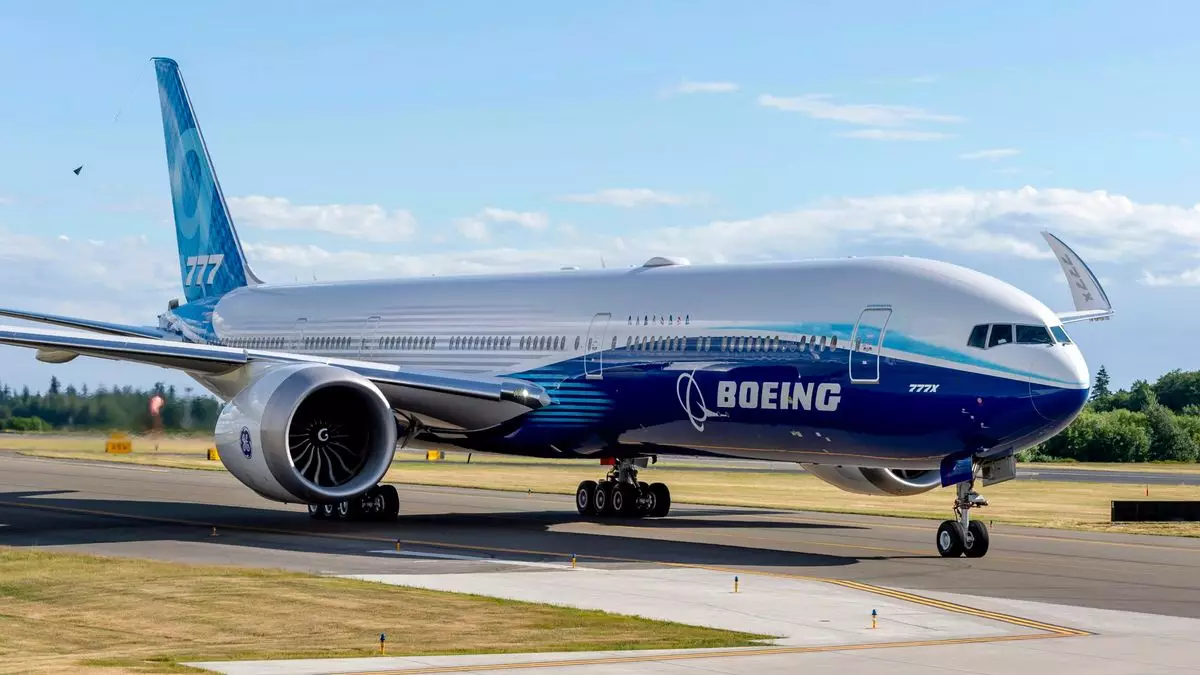In a significant move illustrating the interconnected nature of the aerospace sector, Spirit AeroSystems, Boeing’s primary supplier of aircraft components, announced plans to temporarily furlough 700 workers due to escalating labor tensions. This decision comes in the wake of a prolonged strike by Boeing machinists, which has disrupted production lines not only for Boeing’s flagship models, but also impacted a range of suppliers across the industry. As the situation unfolds, it serves as a stark reminder of how a localized dispute can cascade into broader economic challenges.
On September 13, a labor strike involving approximately 33,000 Boeing employees in the Pacific Northwest commenced, leading to a complete halt in the production of several key aircraft lines, notably the Boeing 767, 777, and 737 Max jets. The ramifications of this strike are profound, extending beyond Boeing itself to engulf its supply chain. Spirit AeroSystems, which plays a critical role in manufacturing parts for these larger aircraft, is forced to confront the reality of significant operational adjustments.
Starting October 28, a contingent of employees involved in the assembly of aircraft components will face a three-week furlough. Following this period, additional layoffs might become inevitable if the strike does not reach a resolution. This precarious position underscores the tightrope that suppliers walk in a heavily intertwined supply structure. Consequently, Spirit is not just grappling with operational disruptions, but also with the financial implications of maintaining a workforce while production stalls.
Compounding these labor issues are ongoing concerns regarding Boeing’s compliance with Federal Aviation Administration (FAA) safety regulations. The FAA has announced a thorough examination of Boeing’s safety processes, set to unfold over the upcoming three months. This increased scrutiny comes as a response to the broader criticisms of Boeing’s safety culture, which has recently been under fire following an incident involving one of its 737 Max aircraft. The FAA’s actions reflect an urgent need to address not only Boeing’s internal practices but also the extent to which those practices ensure the integrity of the supply chain, including companies like Spirit AeroSystems.
A report from the Transportation Department’s inspector general highlighted deficiencies in FAA oversight, elucidating how these shortcomings may hinder Boeing’s capacity to enforce essential safety standards across its extensive supplier network. Furthermore, claims of undue pressure on employees authorized to conduct safety inspections bring additional concern about the integrity of production processes. As ongoing investigations remain open, the industry awaits clarity on how Boeing and its partners will address these regulatory deficiencies, which could have far-reaching consequences for consumer trust and safety perceptions.
In light of these challenges, Spirit AeroSystems has embarked on a cost-cutting strategy that includes hiring freezes and curtailments on overtime, alongside a temporary layoff of workers. Joe Buccino, a spokesperson for Spirit, emphasized the urgency of the situation, citing a significant inventory of unsellable parts due to the ongoing layoffs at Boeing. This inventory management dilemma puts additional pressure on the supplier, revealing the extent to which Boeing’s operational stalls directly affect its partners.
As Boeing anticipates laying off approximately 17,000 employees over the coming months, it signals a substantial contraction that could reverberate throughout the entire aerospace supply chain. The potential layoffs not only threaten job security for countless workers but also raise alarms about the broader economic impacts stemming from disruptions in one of America’s most vital industries.
The current labor strikes within Boeing and the resulting fallout for suppliers like Spirit AeroSystems exemplify the delicate balancing act in the aerospace industry. As stakeholders, from labor unions to regulatory authorities, navigate this tumultuous landscape, the need for open dialogue and collaboration becomes increasingly crucial. Only through collective negotiation and compromise can affected parties hope to stabilize a sector that is pivotal not just to the economy, but to global transportation and commerce as well. As the strike continues and reviews unfold, all eyes will be on Boeing to see how it navigates this challenging period and re-establishes trust with both workers and regulators.


Leave a Reply